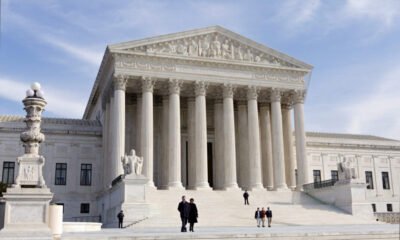Editorials & Opinions
Reflecting on 22 Years Since the 9/11 Tragedy: A Nation Remembers

On September 11, 2023, the United States observed the 23rd anniversary of the tragic events of 9/11, a pivotal moment that reshaped global politics.
The attacks in 2001 marked the beginning of a prolonged international challenge that has significantly influenced geopolitical dynamics for over two decades. In an audio message in 2004, Osama bin Laden articulated his strategy to undermine the U.S., invoking tactics reminiscent of the Afghan resistance against the Soviets.
The economic turmoil induced by the 2008 housing collapse far surpassed the impact of al-Qaeda’s assaults—a crisis stemming from internal systems rather than external terrorist actions. While terrorist acts are undeniably horrific, they rarely precipitate the ruination of democratic societies. More often, such tragedies spark moments of national unity, blurring the lines between cultural and political differences in the face of a common enemy.
Following the 9/11 attacks, people across multiple nations, including the U.S., Spain, Britain, France, and Belgium, responded with a profound sense of solidarity, diminishing political rivalries against a shared existential threat. After 9/11, al-Qaeda shifted focus to the Middle East, instigating a series of violent acts, including shootings and bombings. This wave of unrest did not culminate in the establishment of a unified caliphate but rather fueled movements like the Arab Spring that resulted in regime changes throughout the region.
Bin Laden’s vision of America’s downfall did not materialize as he had hoped; he met his end at the hands of U.S. Navy SEALs in 2011. The U.S. military’s involvement in Afghanistan, ostensibly aimed at depriving al-Qaeda of a safe haven, became an enduring quagmire lasting two decades. Tensions escalated further after the rapid U.S. withdrawal in 2021, leading to the resurgence of the Taliban.
The U.S. response included the detention of 779 individuals classified as “unlawful combatants” at Guantanamo Bay, a controversial decision that has drawn significant scrutiny regarding human rights and moral values. Practices including enhanced interrogation techniques raised ethical questions, challenging the principles of due process fundamental to American identity.
The international landscape morphed drastically post-9/11, with wars justified on the grounds of eliminating threats such as weapons of mass destruction in Iraq. These conflicts led many to reflect critically on governmental messaging and the necessity of transparency.
On the fateful morning of September 11, 2001, countless individuals started their day unaware that it would turn into a devastating event. Office workers in New York City, emergency responders rushing to aid the public, and airline passengers boarding flights all became entwined in an unprecedented tragedy that resulted in the loss of 2,977 lives. Each victim—from civilians to first responders—represented a unique story, forever altered by that fateful day.
In honoring their memory, nearly 3,000 names are inscribed at the 9/11 Memorial, a somber reminder of the lives lost and the impact of the day’s events. Each name echoes a personal story, a life cut short, a family changed forever. As discussions of geopolitics and national priorities continue to unfold, the memory of 9/11 reminds us of the resilience of communities and the enduring significance of unity amidst adversity.


















